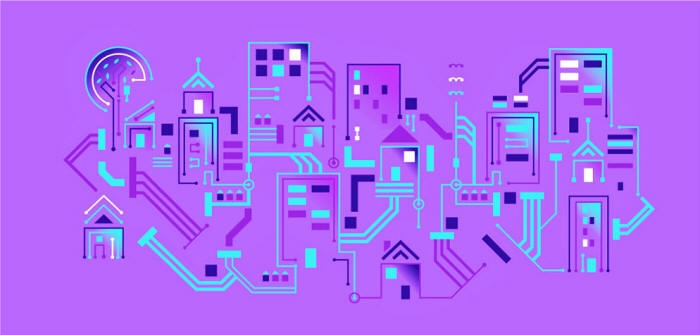|

by Lilian Coral
November 13, 2019
from
KnightFoundation Website
|
Lilian Coral is Knight
Foundation director for national strategy and technology
innovation.
Follow her on Twitter @lcoral. |

Data is the lifeblood of
Technocracy.
-
It fills the sails
of AI.
-
It's the new oil of the
21st century.
-
It is the gusher of the Internet of
Things.
-
The real-time railroad system is
5G.
The word 'enough' is not in the Technocrat's
dictionary.
The Knight Foundation is fishing for more innovative
ideas on how to collect and use data in the 'smart
home' and 'smart city.'
The problem, of course, is that no amount of data
will ever result in wisdom, which is the
greatest human need in the modern world.
Source
The Power of
Open Data to Transform and Engage Communities - A call for Ideas
On November 13,
Knight Foundation
opened
a new call for ideas exploring
transformational ways
data can be used to
build stronger,
thriving and more engaged communities.
Knight's Lilian Coral
shares details below.
See the press release
here
and
register for an
informational webinar
here.
Imagine, at the
main intersection near your home, seeing freshly painted
crosswalks and new signals alerting vehicles, bicyclists and
pedestrians of oncoming traffic.
Last year, the
neighborhood was concerned because of multiple accidents in the
area.
Impressed that
the city has finally done something about this issue, you ask
Siri to let your local council member know you support efforts
to improve pedestrian safety.
You get an
alert on your cell-phone, thanking you for your feedback, and soon
after see a
Facebook notification about the planning
department's virtual town hall meeting to re-imagine the
blighted corner down the street.
Since you have
ideas to add more outdoor activities, you decide to participate.
This vision
relies on the power of open data.
That intersection was
identified based on collision and injury data. Signals collect
data about riders and usage patterns. Resident feedback can be
collected from different platforms or services - public or
private.
That feedback
then needs to be shared - as points of data - with the planning
department, or shared through applications connected to Siri.
When digital
devices like our cell-phones make our lives easier, they do that
through the robust, seamless exchange of data. Much of that data
is harnessed to improve commercial services - our food orders,
ride shares, and the social media sites where we connect with
family and friends.
But this is
just the tip of the iceberg.
The
power
of data - especially "open" data, made available by
government and, in some cases, private companies - also
extends to the possibility of better informing and engaging
residents, encouraging them to participate in more
civically-focused activities.
It's in this
context that
Knight Foundation is issuing
an open call for ideas that advance the concept of open data
and civic engagement to encourage a new set of transformative
approaches for using, understanding and taking action with
public data.
Selected
recipients can earn a share of up to $1 million in funding for
their ideas and projects.
If we meet
people in digital spaces:
Can
we advance new approaches for sharing, displaying,
interpreting and communicating with data?
What are
some alternative ways to collect and analyze data to inform
smarter, more collaborative decisions?
What are
the user-friendly ways to serve, empower and engage
residents, and help them build stronger, more thriving
communities?
The idea of
public access to open data is not new.
In addition to
government, more private enterprises are actively publishing
open data.
For example,
Uber Movement's
Open Data portal provides anonymized data from more than
2
billion Uber trips for noncommercial reuse.
This volume of
data, while technically "open," is not actually accessible to
nontechnical experts.
Many residents
are not "citizen scientists," and efforts to train them to
become more data savvy are slow and force them to earn the right
to engage civically in a digital age.
But the vision
for doing more with data, including seamlessly engaging with
government, is alive and well.
Burgeoning examples of civic data
use that doesn't rely on technical expertise - but meets
residents where they are - show the potential for significant
community impact.
By working with
organizations already focused on using data to engage
communities, and concentrating funding on a critical mass of
projects in a narrow set of communities, Knight Foundation can
gain insights on successful practices that move communities
closer to a vision of participatory, inclusive and engaged
communities.
Our new open
call on data for civic engagement is part of Knight's broader
work in
Smart Cities, which seeks to support stronger, more engaged
communities by enabling the voice of the community to be
reflected in the design and use of technology.
Whether it be,
accident and collision data, park scores, walkability, housing
density, local government information or demographic information,
...all of these data points have the opportunity to radically
change the way residents interact with neighbors, government and
their community.
If we want to
accomplish our goals with open data, we must unlock its use for
millions of Americans (...and others worldwide) who seek to participate in their communities
and make more informed decisions that engender equitable,
inclusive and participatory ones...
|


